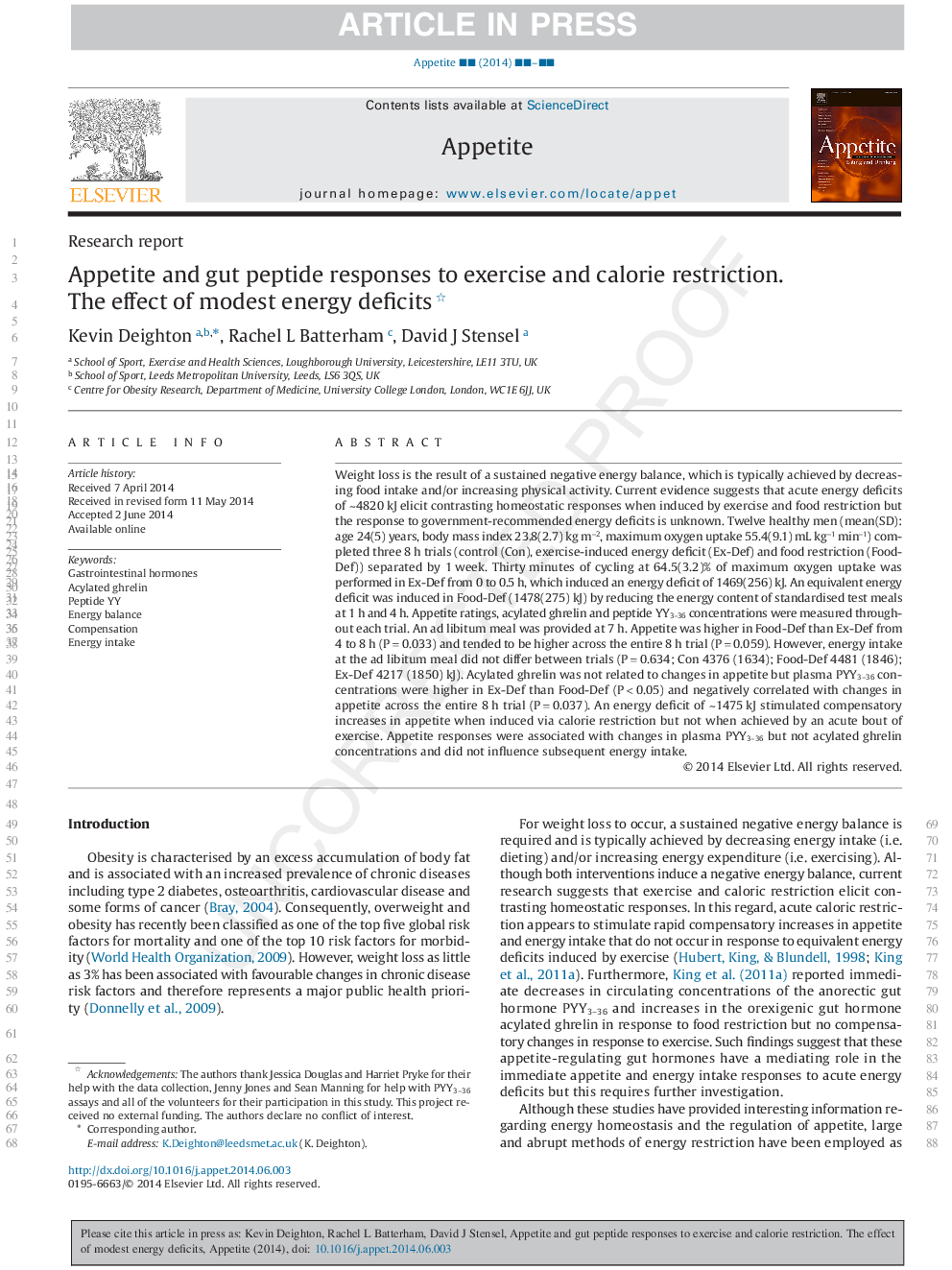| Article ID | Journal | Published Year | Pages | File Type |
|---|---|---|---|---|
| 7309887 | Appetite | 2014 | 8 Pages |
Abstract
Weight loss is the result of a sustained negative energy balance, which is typically achieved by decreasing food intake and/or increasing physical activity. Current evidence suggests that acute energy deficits of ~4820âkJ elicit contrasting homeostatic responses when induced by exercise and food restriction but the response to government-recommended energy deficits is unknown. Twelve healthy men (mean(SD): age 24(5) years, body mass index 23.8(2.7)âkgâ
mâ2, maximum oxygen uptake 55.4(9.1)âmLâ
kgâ1â
minâ1) completed three 8âh trials (control (Con), exercise-induced energy deficit (Ex-Def) and food restriction (Food-Def)) separated by 1âweek. Thirtyâminutes of cycling at 64.5(3.2)% of maximum oxygen uptake was performed in Ex-Def from 0 to 0.5âh, which induced an energy deficit of 1469(256)âkJ. An equivalent energy deficit was induced in Food-Def (1478(275)âkJ) by reducing the energy content of standardised test meals at 1âh and 4âh. Appetite ratings, acylated ghrelin and peptide YY3-36 concentrations were measured throughout each trial. An ad libitum meal was provided at 7âh. Appetite was higher in Food-Def than Ex-Def from 4 to 8âh (Pâ=â0.033) and tended to be higher across the entire 8âh trial (Pâ=â0.059). However, energy intake at the ad libitum meal did not differ between trials (Pâ=â0.634; Con 4376 (1634); Food-Def 4481 (1846); Ex-Def 4217 (1850)âkJ). Acylated ghrelin was not related to changes in appetite but plasma PYY3-36 concentrations were higher in Ex-Def than Food-Def (Pâ<â0.05) and negatively correlated with changes in appetite across the entire 8âh trial (Pâ=â0.037). An energy deficit of ~1475âkJ stimulated compensatory increases in appetite when induced via calorie restriction but not when achieved by an acute bout of exercise. Appetite responses were associated with changes in plasma PYY3-36 but not acylated ghrelin concentrations and did not influence subsequent energy intake.
Related Topics
Life Sciences
Agricultural and Biological Sciences
Food Science
Authors
Kevin Deighton, Rachel L. Batterham, David J. Stensel,
